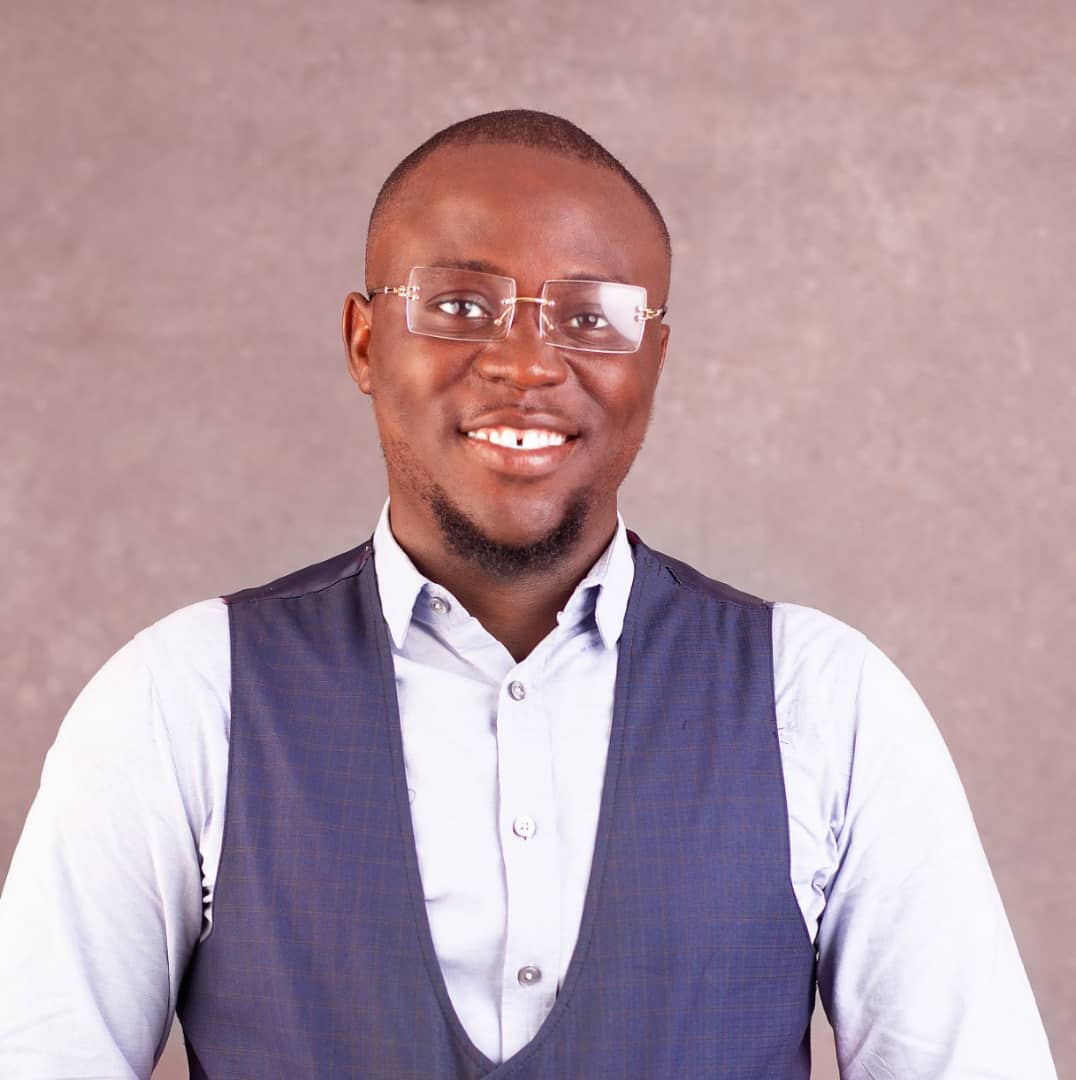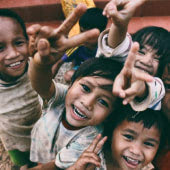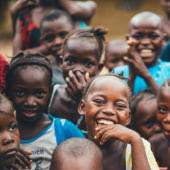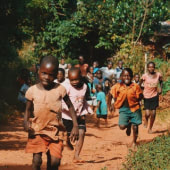By Sulyman Pakoyi
On a sunny Thursday afternoon, after an 80-kilometer journey from the Sunshine State capital, Akure, the air at St. Andrew’s RCM School in Omifon buzzed with excitement. The faces of the pupils lit up with laughter and joy as they gathered to receive a treasure trove of free educational materials: books, school sandals, new uniforms, and other essential items. For these children, it was more than just supplies — hope.
The YALI Ondo Network, through its groundbreaking educational initiatives, is transforming rural schools like St. Andrew’s RCM School in Omifon, bringing hope to underserved pupils.

In Nigeria, one in three children is out of school, amounting to over 18 million out-of-school children. UNICEF asserts that every child has the right to quality education, regardless of their circumstances. The joyful moment at Omifon, though heartwarming, serves as a reminder of the many children who are still left behind.
In Ondo State, the State Universal Basic Education Board (SUBEB) revealed that there are 240,000 out-of-school children in the state. This figure does not accurately reflect the programs and initiatives the state government claims to have implemented to promote quality and accessible education.
In line with the development agenda of the current government in the state, the Commissioner for Education, Science and Technology, Laolu Akindolire said a sum of N3.5 billion with a zero-interest counterpart fund for the Universal Basic Education Commission (UBEC), along with an earlier allocation of N3.2 billion for constructing secondary schools in the state’s three senatorial districts, was approved to reflect the dedication to educational development.
The state government said it supplied 585 units of teacher furniture, 3,360 units of pupil furniture, 72 units of Early Childhood Care Development Education (ECCDE) furniture, constructed 10 boreholes, and built three toilet facilities. Furthermore, seven schools have been secured with perimeter fencing to create a safer learning environment. The government has also recruited 2,000 teachers into public schools, focusing on addressing staffing needs in rural areas.
The Universal Basic Education Commission (UBEC) rated Ondo State as one of the top states that have significantly enhanced basic education in Nigeria, earning itself recognition as the best-performing state in Southwest Nigeria.
According to ODSUBEB, over N24 billion has been invested in the basic education sector over the past seven years. The state government also covered West African Senior School Certificate Examination (WASSCE) fees for 26,088 public school students. Additional efforts were renovations of school buildings, teacher recruitment and training, and a move towards digitalising the education sector. An additional 2,000 teachers are being recruited, focusing on improving schools in rural areas while the annual bursary was doubled from N10,000 to N20,000, while students with disabilities received N75,000 each.
However, the figure (about 240,000) from ODSUBEB regarding the rate of out-of-school children in the state does not justify the government’s efforts.
Improving the education sector isn’t the job of the government alone, non-governmental organizations are putting efforts into making education available to children in rural communities. One such organisation is the Young African Leaders Initiative (YALI) Network Ondo State.
YALI Network Ondo State
YALI was established by President Barack Obama of the United States in 2010 as a signature effort to develop the next generation of African leaders. The programme empowers young African leaders in three major tracks: business and entrepreneurship, public management, and, civic leadership. In Nigeria, YALI has network hubs in almost all 36 states and the Federal Capital Territory, Abuja.

According to Mr Ayodeji Oladeimeji, the YALI Ondo Coordinator, YALI has been at the forefront of advocating, supporting and implementing the strategic development goals in Nigeria and Ondo State in particular. He said that the development of the society is the collective effort of the government and relevant stakeholders. “Government can’t solve our problems alone,” he said.

Ayodeji
He noted that to complement the government’s effort, “Civil society organisations and philanthropists should make it a point of duty, as YALI has been doing, to support the social, political and economic development of the people, especially those in rural communities.
YALI Ondo’s Education Drive: Tackling Rural Education Challenges
The YALI Education Drive is one of the initiatives that complement government in community development efforts in the education sector. The project addresses the challenges of rural education in Nigeria by supporting underserved communities with school supplies and advocacy effort. The project was initiated in the hub in 2022 and has so far supported three primary schools in rural communities in Ondo State. This project excludes other school-based outreaches the body has implemented in the state.
The Education Drive project on the one hand entails giving academic materials such as school bags, uniforms, sandals, textbooks, mini bookshelves and other materials to indigent pupils to aid their learning. On the other hand, it is to engage relevant authorities to raise awareness about the conditions of the schools the project is being implemented.
The project’s first edition was held at St. Peter’s Anglican Primary School, Aponmu in 2022. The second edition was held at St. Stephen Primary School Iwoye while the third was held at St Andrew’s Primary School, Omifon.

Mr Ayodeji said the YALI Education Drive project “identifies schools with lack of infrastructure and educational materials and reach out to our partners, supporters and YALI ondo networks to provides for them”
“The reasons for doing this [Education Drive] are to curb the high out-school children rate in Ondo State and Nigeria in extension. For instance, a pupil who doesn’t have a school uniform, or writing materials or his parents are not forthcoming due to the economic situation in the country may end up on the street begging. He said;
“Providing these materials will keep them in school, aid their learning, and positively influence their potential.”
Mr Ayodeji called for collaboration with other civil society organisations to accelerate the growth of community development.
“I encourage civil society to collaborate and reach out to other organisations implementing similar projects that way our societal problems would be solved in due time,” he said.
While emphasising the input of civil society organisations, he stressed that it is the government’s responsibility to provide for its citizens.
“Government needs to make it a point of duty to build good infrastructure and conducive learning environment, especially for pupils in basic classes. While we support the government, it must also ensure it delivers on its mandates, as entrenched in the constitution. If the government had done well, we would not be here.”
Mr Ayodeji added that the welfare of teachers should be adequately taken care of, “when teachers are not well renumerated, they won’t deliver as expected,” he said.
The Brain Behind the Project
The Education Drive Project, initiated by the former YALI Ondo Coordinator, Mr. Saheed Ibrahim, aims to make education accessible in underserved communities. Ibrahim believes young people also have a vital role in community development.
“I initiated this idea for rural schools. I believe as a youth-led organisation, we have the responsibility to contribute to rural development through education.”
The initiative’s goals go beyond donating educational materials. It seeks to hold the government accountable for its responsibilities towards schools in rural areas, which are often overlooked. Ibrahim explained that the project collects photographic and video evidence of affected schools, presenting these to government officials and agencies to prompt urgent action in providing adequate funding, human resources, and materials.

Ibrahim
“We don’t stop at giving out educational materials alone. We have become familiar with the Ministry of Education and ODSUBEB. We usually write them to draw their attention to schools we discover need government intervention. We also submit letters to the Ondo State House of Assembly, especially the House Committee on Education,” Ibrahim said.
Collaboration and Funding
According to Ibrahim, the project thrives on collaboration. “This project thrives on collaboration. We do not do it out-of-pocket, except for some members who are buoyant enough to donate. We raise funds and approach organisations that share our philosophy about schools in rural areas.”
The project has received support from organisations such as the Gbenga Fawehinmi Foundation, Sojitade, Rural Nurture Initiative, Centre for Storytelling and Development Initiative, MO Education Foundation, and others. Contributions also come from business organisations, with some fashion designers sewing uniforms for students and others providing cash or in-kind donations.
Achievements
The Education Drive Project has achieved notable successes. For instance, at Saint Peter Secondary School in Aponmu, another organisation, Sunbeth reconstructed classrooms for the school after YALI intervened in 2022. At Iwoye Community, YALI presented pictorial evidence to the government showcasing the poor state of school structures and the unfriendly learning environment.
Ibrahim noted that similar advocacy efforts are ongoing for St. Andrew’s RCM School in Omifon. “We are happy to hear that the Ondo State government rolled out plans to recruit teachers for schools in rural areas. This has been part of our agitations, and we are glad it is happening,” he said.
Looking ahead, Ibrahim stated that the initiative plans to expand to other communities across the state. “We realised that government alone cannot do it, and some government officials are failing in their responsibilities. We can’t leave them alone to themselves,” he concluded.

Surmounting Challenges
The project has faced several challenges. According to the first Project Director of the Education Drive Project in 2022, Mr. Segun Oladapo, these included securing sponsors, collaborating with partners, and identifying schools to target.
He stated, “Being the first project at that time, it was difficult for us to plan and execute the project but with the support of the team members, we were able to implement it and it has been a model for subsequent projects ever since.
“In addition, we have partners, business owners and hub members who could offer professional support in one way or another. We also did fundraising for members of the public to make donations for the project.”
Mr Oladapo expressed hope that future projects would be more successful and that St. Andrew’s RCM School would have been renovated, with its issues addressed by the government before the next project, which is planned for another school. He concluded, “We will keep engaging the government on the school.”











Pen game’s top notch. Kudos my brother